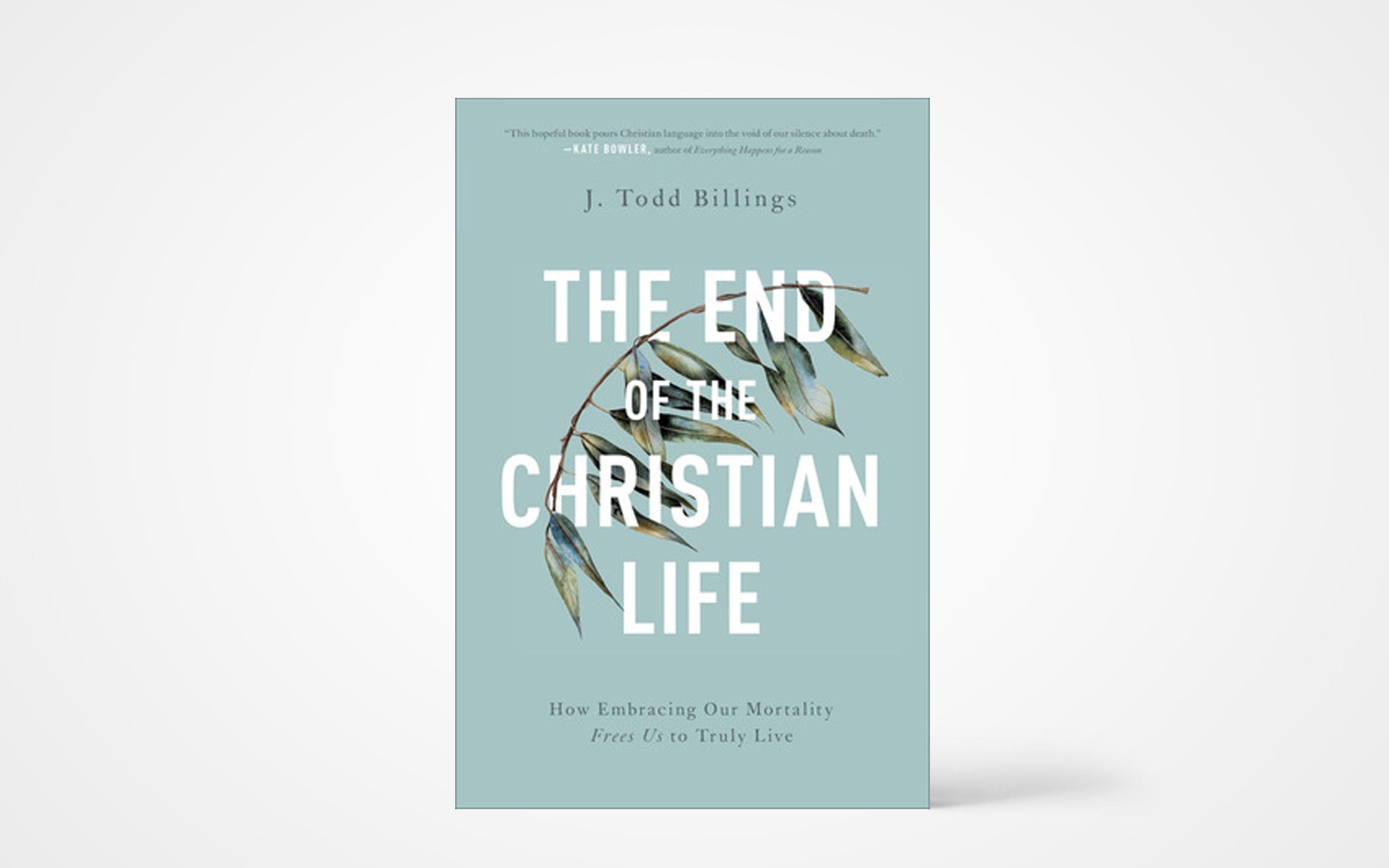“To desire eternal life with all the passion of the spirit.
To keep death daily before one’s eyes.”
The lines above form the epigraph of a timely new title, The End of the Christian Life: How Embracing Our Mortality Frees Us to Truly Live. Some might wonder how these two lines, excerpted from The Rule of St. Benedict, could be combined. How does desire, passion, and eternal life coalesce with daily contemplations of death? Award-winning author J. Todd Billings, research professor of Reformed theology at Western Seminary in Holland, Mich., provides an answer.
Billings explains how embracing our mortality encourages us to trust in God’s promise of eternal life, and he does so with the shepherding heart of a pastor, the mind of an eminent scholar, and the eyes of a keen observer of culture. His gifts as a writer make this a book worth reading.
Billings also braids his reflections on death and discipleship with his own journey into the valley of shadows as a cancer patient contending with multiple myeloma, an incurable blood cancer.
In the psalmists’ laments and the “world of cancer patients,” Billings found many others in the valley. His first chapter, startlingly titled “Welcome to Sheol: A Guided Tour of Life in the Pit,” explores easily missed contours of meaning in the word sheol. Often a reference in the Psalms to the grave or the place of the dead, sheol provided Billings a focal point for noticing how death and faith commingle in the formational poetry of ancient Israel. If a literal grave, how could various psalmists cry out in lament from sheol and then offer jubilant praise for deliverance?
Sheol emerges as an extended metaphor for “places of bondage and silencing,” and for “places of loss and fear and loneliness,” for “death” in figurative language. However, death seen figuratively allows at least two different meanings. One semantic range, the one Billings preferred, joins death to words like “enemy,” a “violation,” a “sting,” and a “horror.”
But, after talking to a group at a retirement center, he understood a second range of meaning, one that included words like “reward,” “relief,” a “mercy,” even one “overdue.” Was one correct or preferred? The chapter questions hint at an answer: “Might they both be true at the same time?”
In the heart of Billing’s narrative, one rich with enduring metaphors, comes an invitation to continue following his biography of adversity: “I’ve been transported to a different planet … called modern medicine.” In this strange place where “stuckness … deepens” and “solutions” often lead to new “problems,” the familiar terrain and accessible language almost convince him that our battle is not with sin and evil but with disease and decay; we are “catechized in the hope” that science and modern medicine will one day win the war against death and dying.
When hope is thin, Billings feels the attraction of the prosperity gospel’s purveyors, those who catechize a similar hope while also promising happiness, health, and abundant life now. With patience and a wise allowance for ambiguity and paradox, Billings gently deconstructs the tempting notions that God assures us physical health and material prosperity.
Billing’s expansive reach, his artful prose, and his chronicle of struggle weave together a profound testimony summed up well by words of Peter Craigie: “Recognizing the transitory nature” of our lives “is a starting point in achieving the sanity of a pilgrim in an otherwise mad world.” Through embracing his mortality, Billings can declare his hope “that the frailty and decay of my body will not be the final measure of my life.” And he sings now “as one whose life is ‘hidden with God.’ From that place of hiddenness, I look forward to the end.” (Brazos Press)
About the Author
Dave Beach is an educator/counselor/author currently serving trauma survivors as the mental health director at the Johnson-Brower Foundation. He authored Following the Man of Sorrows: A Theology of Suffering for Spiritual Formation and co-authored The 7 Pillars of SheWillStay and The Essential Bible Companion to the Psalms. He and his wife, Cynthia, own a publishing company, soulseasonspublishing.com. Visit him on Facebook at David R. Beach in Lowell, MI.

